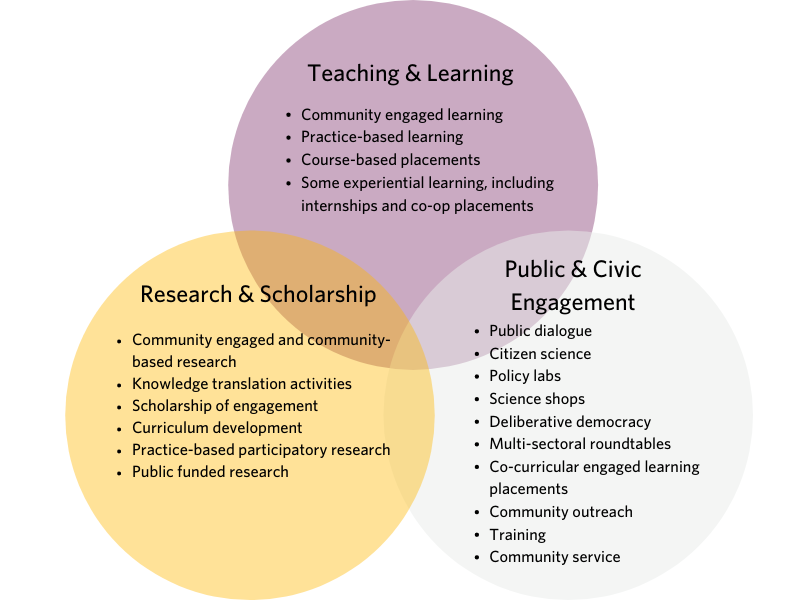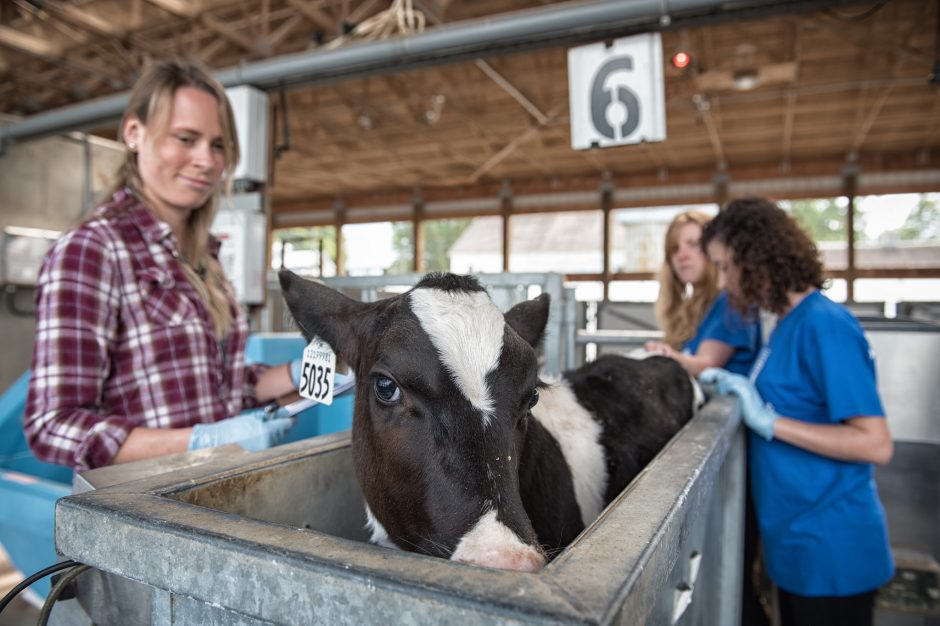
Community engagement is people working together to affect positive change. The 2017 Community-University Engagement Dialogue Series resulted in the adoption of a university-wide definition of community engagement:
“The interaction and collaboration between UBC and all parts of the wider community (local, regional, national and global) for the collectively beneficial exchange of knowledge and resources in a context of partnership and reciprocity.”
What are the types of Community-University Engagement?
Community Engagement has many facets. It may include, but is not limited to, the activities listed below:

Activities span a wide spectrum, ranging from light-touch outreach to deeply transformative long-term engagement that changes the ways we think and act. But community engagement goes beyond what you do, it’s how you do it – and the way we engage is founded on principles.
What is Principled Engagement?
Effective engagement is built on guiding principles that support relationships and benefit both parties. Many university and community groups have established guiding principles to shape how they take on engagement activities.
In CE, we are guided by and promote four principles of engagement that were co-developed in consultation with UBC and community partners:
- Reciprocity: Exchanging resources and knowledge in a manner that benefits everyone involved.
- Flexibility and Openness to Learn: Listening to and learning from each other, admitting to and addressing mistakes, and adapting approaches to changing contexts, needs, or priorities.
- Transparency: Having clear, honest, and ongoing dialogue about process, ownership, access and motivation.
- Diversity and Inclusion: Listening to and learning from communities that have been disadvantaged, marginalized, and/or excluded. Recognizing, respecting, and valuing diverse knowledge, experiences, and contexts.
Why Engage?
There is nothing peripheral about community engagement in the university. Principled engagement is core to the academic mission and public relevance of UBC. Engagement benefits students, faculty, staff, the university and the community. It is foundational to excellence in teaching, learning and research and critical to enhancing economic, social and cultural well-being. Engagement is integral to UBC’s vision as a global leader in teaching and research. Principled engagement is a means towards building a more just and equitable world. Engagement is and will continue to be a necessary component of addressing the most pressing and complex issues of our times.
Please visit our news and stories page to see examples of how community engagement is used to respond to issues including the climate crisis, social isolation during COVID, Indigenous fisheries revitalization, mental health support for the hard-to-reach, and many other fascinating and wicked problems we face together.




“A commitment to excellence in teaching and research will increasingly depend on a university’s capacity to partner as much it does on its ability to create and disseminate knowledge. Put another way, effective engagement that is central to university strategy may provide the most powerful driver of the agility required to thrive in the uncertain environment to which universities are subject worldwide.”
Gaskell, S. & A. Collette. Dec 8, 2016. The Benefits of Engagement. Times Higher Ed Feature Article.